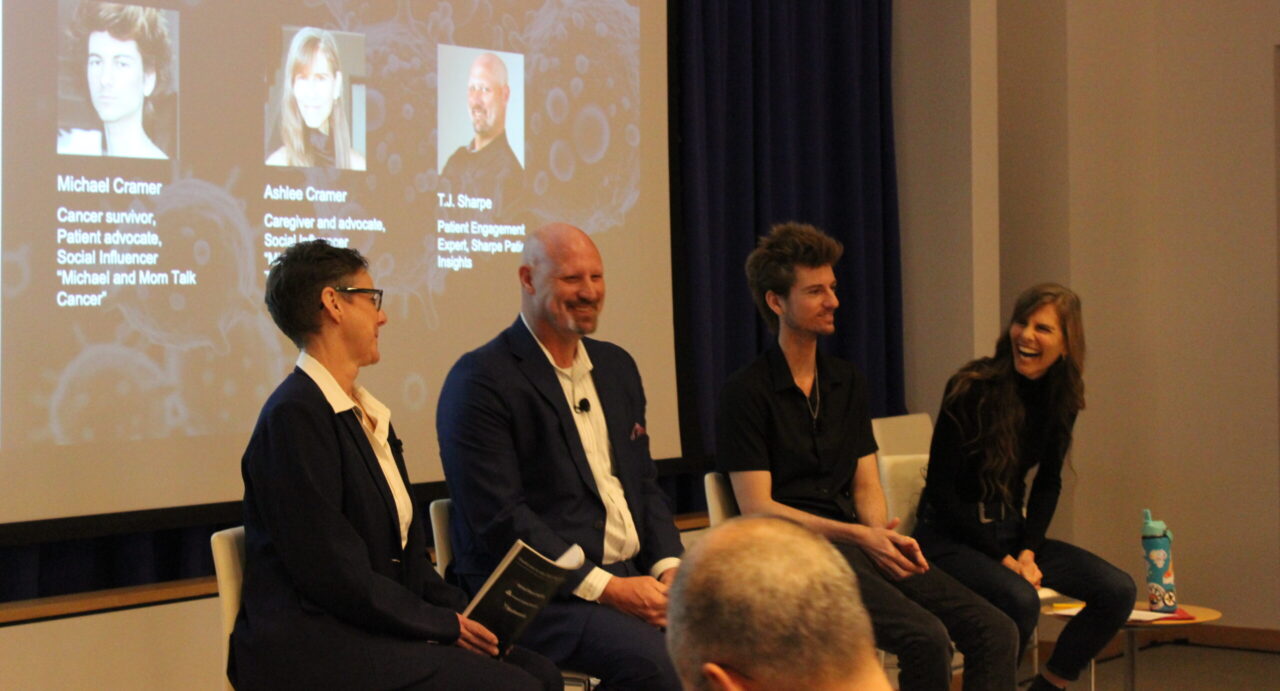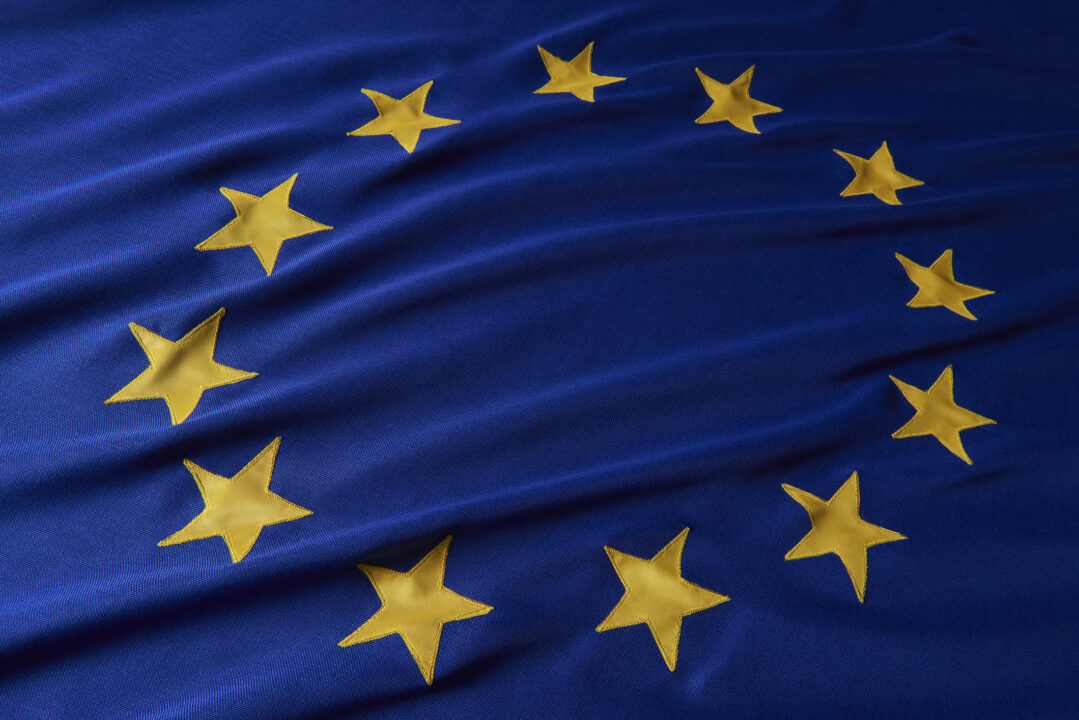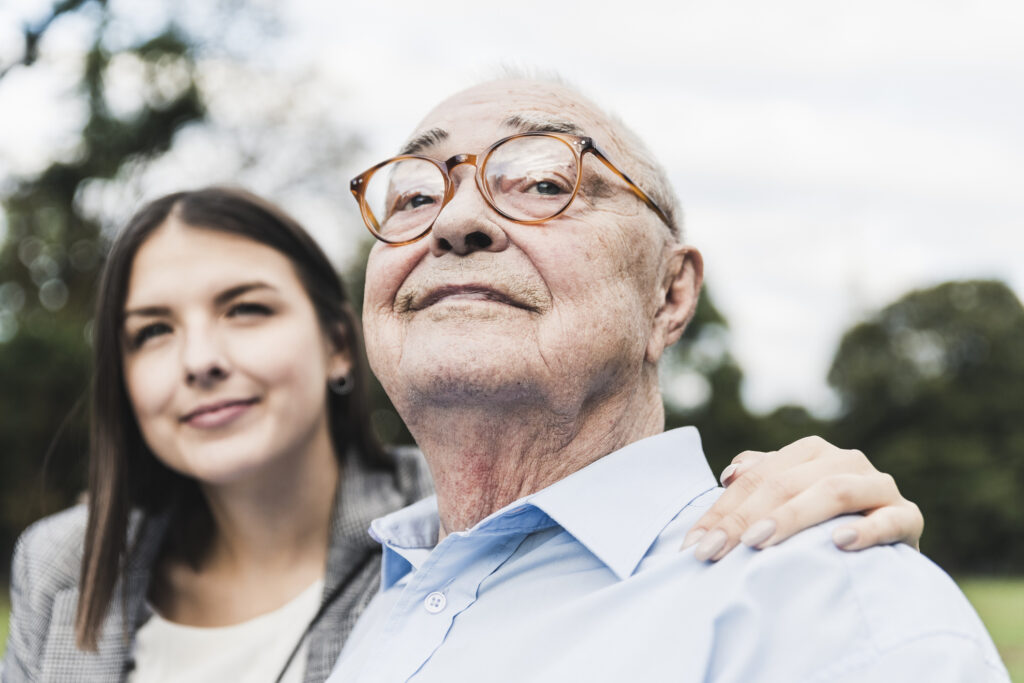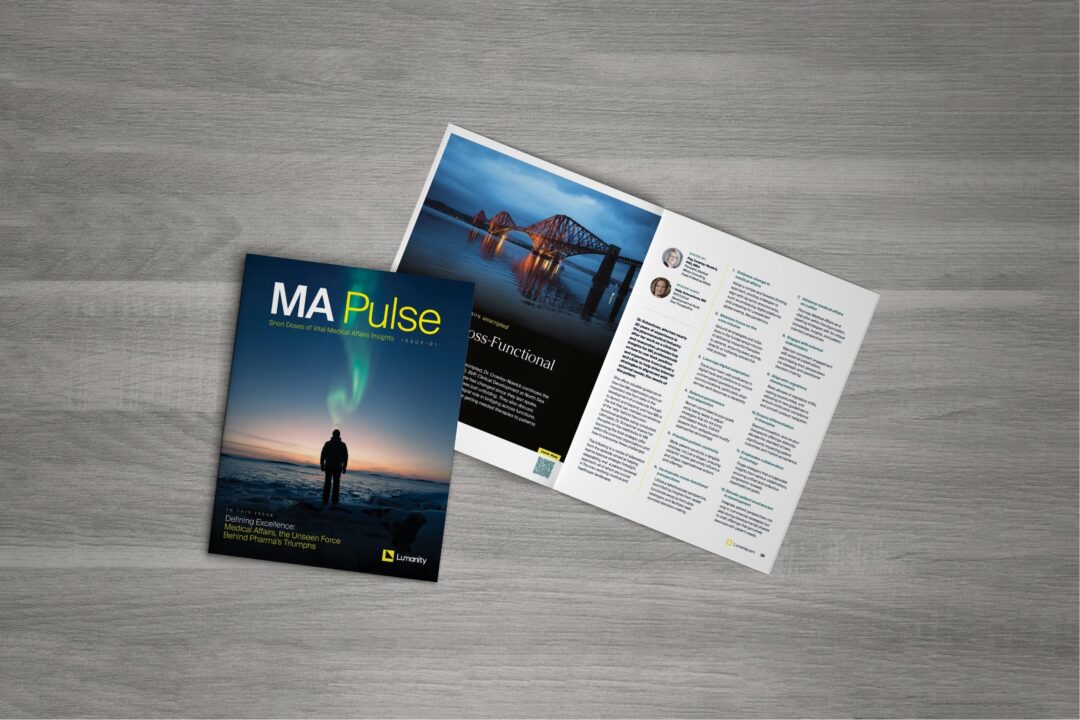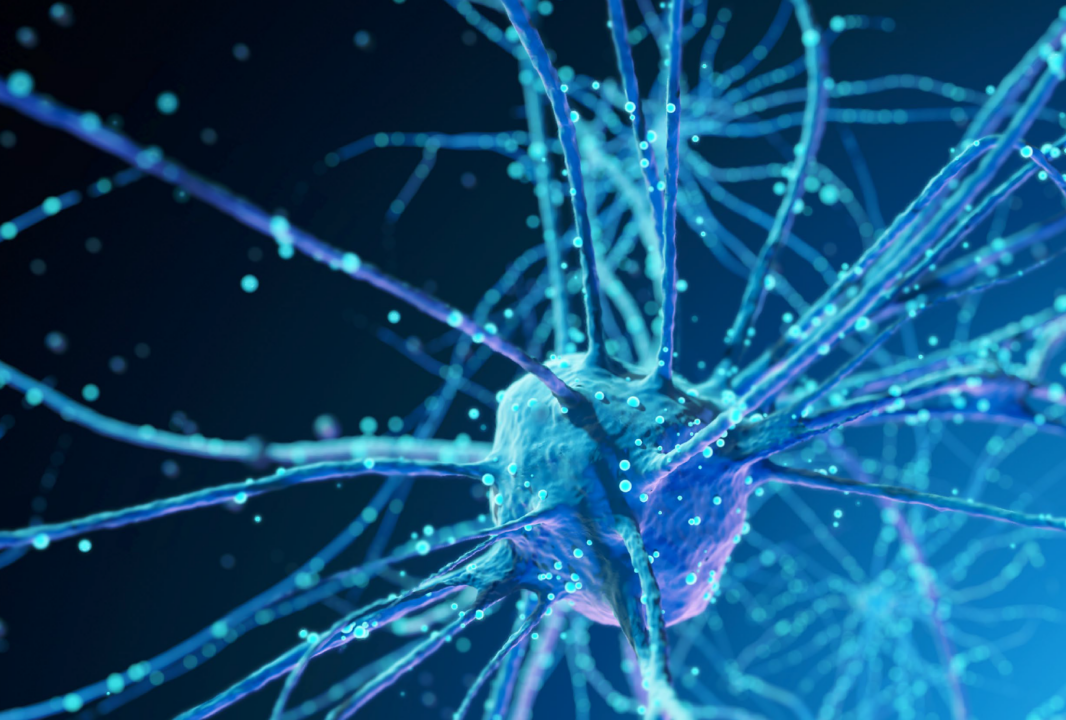Authored by Guidemark Health, now part of Lumanity
Happy new year colleagues and friends! It is hard to believe this month marks the one year anniversary of our inaugural Health Action Community (HAC) event, focused on addressing unmet needs in metastatic breast cancer (MBC). As I reflect on the progress made since last January, I thought now is an ideal time to share details from the day, acknowledge the many contributions of the participants, and provide an update on action steps since the event.
HAC MBC Morning Program
At registration, guests received an attendee bag with educational material to review during breakfast and have as reference during the working session. Post registration and breakfast, guests gathered for the official event kick off which began with a welcome from Michael Parisi. From there, in order to prepare the teams for the challenge session, a series of guest speakers helped educate the group on MBC and the burden of disease.
To say the next hour of the day was deeply moving would be a huge understatement. Although I had been working on the hackathon for months leading up to the event, I was overcome by the stories shared that touched on every emotion. On one end – anger, fear, anxiety, sadness – juxtaposed with stories of perseverance, resilience, promise, and hope. For all the pervasiveness of breast cancer awareness, especially during the month of October, the HAC MBC speakers crystalized how different and urgent the needs of this group are in comparison to the larger breast cancer community.
Christine Verini, Chief Operating Officer at CancerCare, started the program. She shared the history of the organization and discussed the many services they provide. Born out of need, CancerCare helps people cope with the emotional, financial, and educational needs of any cancer diagnosis. Their comprehensive services include counseling and support groups over the phone, online and in-person, educational workshops, publications, and financial and co-payment assistance. All CancerCare services are free and provided by oncology social workers and world-leading cancer experts. As the organization prepared to celebrate their upcoming 75th anniversary (in May) and the next 75 years of providing help ad hope, they were an ideal partner for our inaugural hackathon which sought to identify new solutions to address unmet needs in MBC.
With over 30 years at CancerCare, Kathy Nugent, Director of Regional Programs, addressed the group next. She shared moving and inspirational stories of survivorship with metastatic breast cancer. Listening to the important work that Kathy does was extremely inspiring as she shared many firsthand stories. Given her direct connection to the MBC community, she shared the recurring themes and struggles faced spanning emotional, financial, and informational. In an extremely memorable moment, she told the story of a client she still connects with who has been coping with metastatic breast cancer for 22 years.
Andrea Ottaiano, Certified Health Coach, Health and Wellness Advocate, and Founder of Silver Lining Holistic Health, then walked the group through her personal journey. Her presentation, “Looking for the Silver Lining: My 12 Year Journey with Breast Cancer,” took us through her remarkable story starting with her initial breast cancer diagnosis in January 2007 and MBC diagnosis in December 2010. She spoke to us about her treatment journey, surgeries, and secondary cancers in detail. With her children only 3 and 1 at the time of initial diagnosis, she acknowledged the impact on the whole family and how she agonized over the idea of not raising her kids. She spoke about doctors who addressed her in “grave” tones and missing the “old you” and how you used to feel and look.
Andrea is one of the strongest people I’ve ever had the pleasure of meeting. In the face of uncertainty, she has achieved new personal milestones and continues to persevere, thrive, and help others. In closing, she challenged the group to ideate ways to help her and others like her to think about the future in a new way, create something to help navigate through the many unknowns, and connect the MBC community to strengthen the collective voice and build support.
Healthy Competition
With the tone set, Carolyn Ricci, HAC MBC Keynote, Advocate and Former Program Director, Avon Breast Cancer Crusade, and Nora Herting, Co-Founder and CEO, ImageThink closed the morning program. Before briefing the group on what to expect for the rest of the day, Carolyn shared some final inspirational thoughts and recapped the many physical, practical, psychosocial, and emotional challenges faced when living with metastatic breast cancer. In conclusion, Nora walked everyone through a collaboration framework tool they would see in their breakout rooms. The framework served to maximize the output of a timed challenge by guiding the team brainstorms and decision making.

Carolyn and Nora then joined the other esteemed judges and Andrea to rotate between the rooms to provide feedback and answer questions as the teams worked through the challenge to develop a solution for presentation.
Winning Ideas
The judges were looking for the concept that had the greatest potential to improve the lives of those impacted by MBC. This meant there was priority placed on the impact and feasibility of the idea. They were looking for comprehensiveness in terms of how well the solution addressed an unmet need or needs. To realize the benefit quickly, they were also looking for a thought-out roadmap and timeline for bringing the solution to market.
As the teams presented their solutions, it became quickly obvious that many teams had similar ideas. In direct response to the problem challenge to design a solution to address daily challenges in MBC so those impacted can gain back control despite uncertainty, the teams clearly felt that more than a new widget or gadget, access to credible information would be the best way to empower MBC survivors. Case in point, one team posed the question: What if everyone impacted by MBC had access to someone like Andrea or Kathy to help answer questions or direct them to resources and tools that could help with specific challenges?
The message of the day clearly resonated with all participants. While survivorship is growing, given the monumental effects of living with an uncurable cancer on the patient and their loved ones, a loss of control has exponential impact. With knowledge comes confidence and the ability to make informed decisions.
The winning concept, “MBC What Do I Need Today,” outlined an informational microsite that could live on CancerCare.org. Content would be curated from vetted and credible resources and navigation would be self-directed based on immediate need such as help managing finances or relationships. In speaking with the winning team (Beth Burnett, Shubh Goel, Ruth Markowitz, Laura Rozan, Brenda Sarokhan), they were inspired by the desire to enable patients to be their own best advocate. They acknowledged that patient and caregiver needs change daily and questions and concerns are continually evolving. Their solution would allow patients and caregivers to take back some control and act on the specific need of the day.

The winning solution was full circle in that beyond the immediate benefit to the end user, CancerCare would gain real-time data on patient needs and resource gaps.
While many teams submitted similar ideas, there were notable elements from each proposal to be considered as CancerCare continued to evolve their services for this population. For example, one team included an avatar that mimics a friend. The avatar would get to know you over time, and could assist with navigation, but also suggest when it might be time to pick up the phone and call CancerCare for live support.
There were other solutions brought forth that the judges felt would be useful as well. For example, one team conceived of “My MBC Planner,” an app-based platform to help with finances, or the volume of finances as explained during the presentations. The concept would simplify financial tracking including billing and insurance related documents such as EOBs, lab bills, and prior authorizations as well as non-medical treatment related expenditures such as transportation for medical procedures and appointments.
The team felt that by consolidating finance related documents and integrating topic specific education in a singular resource (i.e. cost of living calculators, bankruptcy) the My MBC Planner would increase financial literacy for the end user, thus helping alleviate some of the emotional burden caused by financial stress and planning.
Despite there being only one winner, CancerCare felt there were elements across all submissions that could one day be incorporated into existing or future resources.
Progress to Date
It’s exciting to announce that since the MBC Hackathon, CancerCare has created and launched a webpage dedicated to metastatic breast cancer resources to help better serve and empower those affected by this cancer diagnosis. The destination provides specific and tailored information for anyone looking for MBC resources including face-to-face, online and telephone support groups, community programs, workshops, publications, and much more.
For example, there is an extensive podcast library covering topics such as living with MBC, updates on clinical trials, the evolving treatment landscape, and coping with the stresses of caregiving. There is also a Q&A section called “Ask CancerCare” where featured oncology experts answer questions regarding metastatic breast cancer. You can check out the new resource here.
A key takeaway from the hackathon was how in the deluge of online information, credible information is the best way to empower those impacted by MBC. To that end, all content and resources are vetted and/or run by oncology experts and oncology social workers with deep experience in MBC. Furthermore, the winning team wisely pointed out that patient and caregiver needs change daily and questions and concerns will continually evolve. The new CancerCare MBC online webpage answers the call, allowing patients and caregivers to take back control and act on the specific need of the day. Whether reducing feelings of isolation, help with self care and preservation, or keeping up with highlights from major medical meetings, information is quickly accessed, actionable, and above all things credible.
Although significant progress has been made, CancerCare continues to formulate a more detailed roadmap to further incorporate the winning idea as well as increase financial initiatives to further assist the MBC community.
Despite progress, there is still much to do to help those impacted by metastatic breast cancer. For example, 2019 was a monumental year for raising awareness of certain risks associated with breast implants. Andrea Ottaiano was on the front line of public efforts to change the conversation and regulation around implants. She, along with many other advocates and experts, continue to push for progress in this area and are making a big impact.
We applaud Andrea and the community for all their effort and look forward to sharing an update from her soon.
A New Way Forward
We believe that big challenges require collaborative, creative, and diverse solutions. A HAC event provides the space and resources to enable people to take time of out their busy schedules to ideate solutions that can make a real difference for communities impacted by significant health challenges. The HAC model was born out of need, but required passion, collaboration, and a commitment to others to move beyond a concept. At the core, the essence of Health Action Community is to provide solutions to unmet needs identified by the very community the solutions are designed to help.



